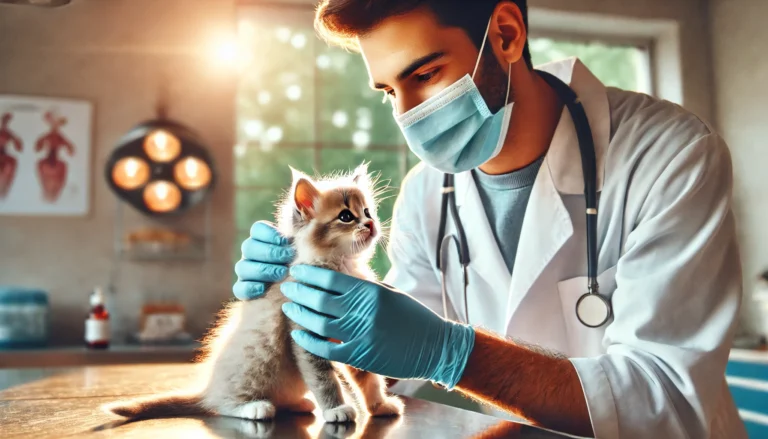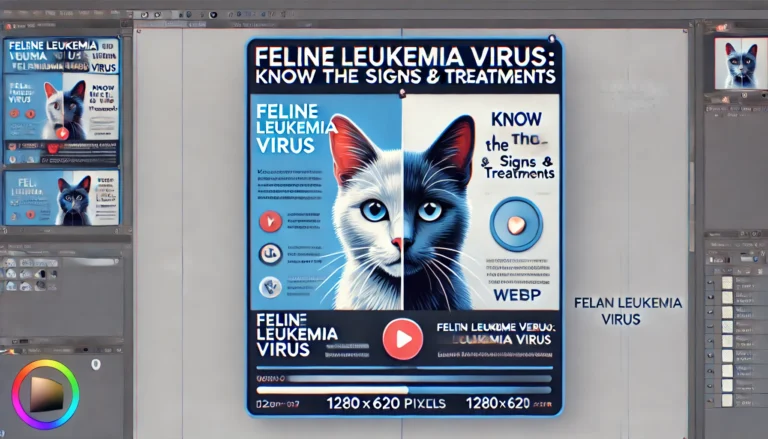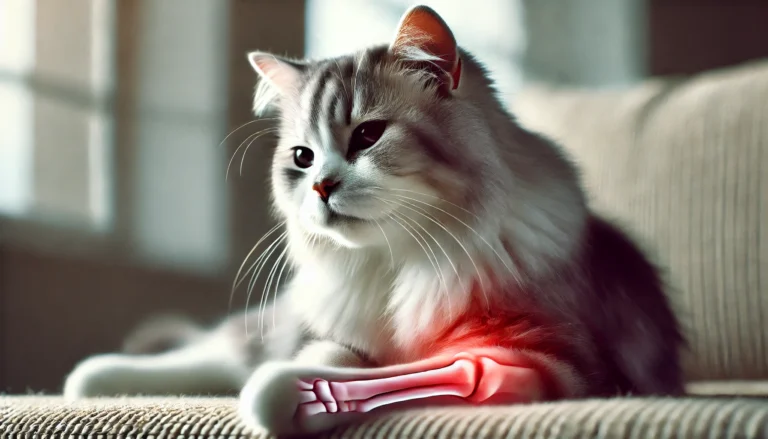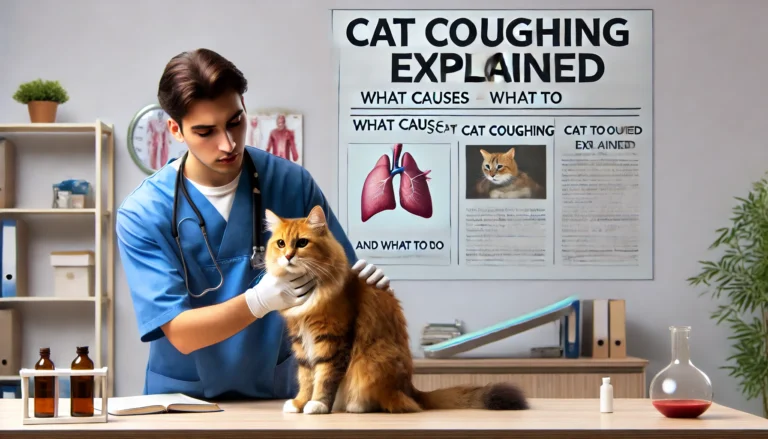Hyperthyroidism in Cats: Symptoms and Treatment

What is Hyperthyroidism in Cats?
Hyperthyroidism, often referred to as hyperthyroidism in cats or feline hyperthyroidism, is a prevalent endocrine disorder among older felines. This condition arises from an overproduction of thyroid hormones, leading to a multitude of systemic effects that can severely affect a cat’s health. Recognizing the symptoms of hyperthyroidism in cats is crucial for early intervention and effective management. This extensive guide will delve into the nuances of cat hyperthyroidism, from symptoms to treatment options, to help cat owners navigate this complex condition.
What is Hyperthyroidism in Cats?
Hyperthyroidism affects the thyroid gland, which produces hormones that regulate numerous body functions. In cats, this condition is typically caused by an enlargement of the thyroid gland. Such enlargement is often benign but results in the gland producing an excessive amount of thyroid hormone. Feline hyperthyroidism significantly accelerates the body’s metabolism, manifesting in various symptoms.

Identifying Symptoms of Hyperthyroidism in Cats
Hyperthyroidism cats display a range of symptoms that cat owners can quickly notice. Key symptoms of hyperthyroidism in cats include:
- Increased appetite and weight loss: Cats with hyperthyroidism may show an insatiable hunger but paradoxically lose weight.
- Increased thirst and urination: A direct consequence of the metabolic upheaval caused by excessive thyroid hormones.
- Hyperactivity: Cats may appear more restless or more active than usual.
- Poor coat health: The quality of a cat’s fur may decline, becoming dull and matted.
- Gastrointestinal symptoms: Vomiting or diarrhea can occur, reflecting the increased metabolic rate.
Other signs include breathing difficulties, behavior changes, and in some cases, hyperthyroidism symptoms cats can develop include a rapid heart rate or aggressive behavior. It’s crucial to note these changes and consult a veterinarian if they persist.
Diagnosis of Hyperthyroidism in Cats
The diagnosis begins with recognizing the cat hyperthyroidism symptoms and is confirmed through clinical evaluation and specific tests. Veterinarians will often perform a physical examination where an enlarged thyroid might be palpable. Blood tests are crucial, measuring levels of thyroid hormones in the blood, primarily the thyroid hormone thyroxine (T4).
Treatment Options for Managing Hyperthyroidism in Cats
The management of hyperthyroidism in cats can vary, but there are several effective treatments available:
do you ever think about
Seeing a dog throwing up blood can be alarming for any pet owner. This condition, called hematemesis, may occur due to various reasons, from minor stomach irritation to serious health problems like internal injuries or poisoning. Whether it’s specks of blood in your dog’s vomit or large amounts, it is crucial to understand what might be causing it.
Medication
Antithyroid drugs, such as methimazole, are commonly prescribed to manage thyroid problems in cats by inhibiting hormone production. However, these are not curative and must be administered lifelong, with periodic adjustments based on follow-up blood tests.
Radioactive Iodine Therapy
Often considered the definitive treatment for hyperthyroid cats, radioactive iodine therapy involves a single injection that destroys the overactive thyroid tissue. It has the advantage of being a permanent solution in most cases without the need for surgery.
Surgery
Thyroidectomy, or surgical removal of the thyroid gland, is another option, particularly when medication is not effective or in cases of malignant thyroid tumors. However, it carries risks such as damage to the parathyroid glands and requires careful post-operative management.
Dietary Management
Some success has been found in managing hyperthyroidism in cats through diet, specifically by feeding a low-iodine diet which limits the raw materials available to make thyroid hormone. This must be strictly controlled to avoid iodine intake from other food sources.
Prognosis and Management of Hyperthyroidism in Cats
With proper treatment, the prognosis for cats with hyperthyroidism is generally good. Long-term management may require adjustments in treatment based on the cat’s response and ongoing monitoring of thyroid hormone levels. Regular veterinary check-ups will ensure that your cat maintains a good quality of life, managing this condition effectively.
Conclusion
Hyperthyroidism is a significant yet manageable condition in cats that requires a combination of careful monitoring, medical intervention, and sometimes dietary adjustments. Understanding the symptoms and available treatments allows cat owners to provide the best care for their feline companions. By addressing hyperthyroidism in cats promptly, the adverse effects on their health can be minimized, and they can continue to lead a happy and active life. Whether through medication, diet, or more advanced treatments like radioactive iodine, managing feline hyperthyroidism is a commitment to your cat’s long-term well-being.
What is the best treatment for hyperthyroidism in cats?
Radioactive iodine therapy is highly effective as it targets and destroys overactive thyroid tissue without surgery, offering a potential cure with minimal side effects.
What is the gold standard treatment for hyperthyroidism in cats?
Radioactive iodine therapy is considered the gold standard treatment for feline hyperthyroidism due to its high success rate in permanently curing the condition.
How long can a cat live with treated hyperthyroidism?
With appropriate treatment such as medication or radioactive iodine therapy, cats can live many healthy years, often reaching their normal life expectancy.
What are the signs of hyperthyroidism in a cat?
Common signs include increased appetite, weight loss, hyperactivity, poor coat condition, increased thirst, and urination. Some cats may also exhibit aggressive behavior.
What is the best food for a cat with hyperthyroidism?
A low-iodine diet can help manage hyperthyroidism in cats by limiting the amount of hormone the thyroid can produce. Prescription diets specifically formulated for thyroid health are recommended.
What are the final stages of hyperthyroidism in cats?
In the final stages, cats may experience severe weight loss, muscle wasting, and weakness. Uncontrolled hyperthyroidism can lead to heart problems and eventually be fatal.
What is the best thyroid medication for cats?
Methimazole is the most commonly prescribed medication for managing hyperthyroidism in cats. It effectively controls hormone production and is available in oral and topical forms.
What is the pill for hyperthyroidism in cats?
Methimazole is the primary pill used to treat hyperthyroidism in cats. It helps control thyroid hormone production and is administered once or twice daily.






